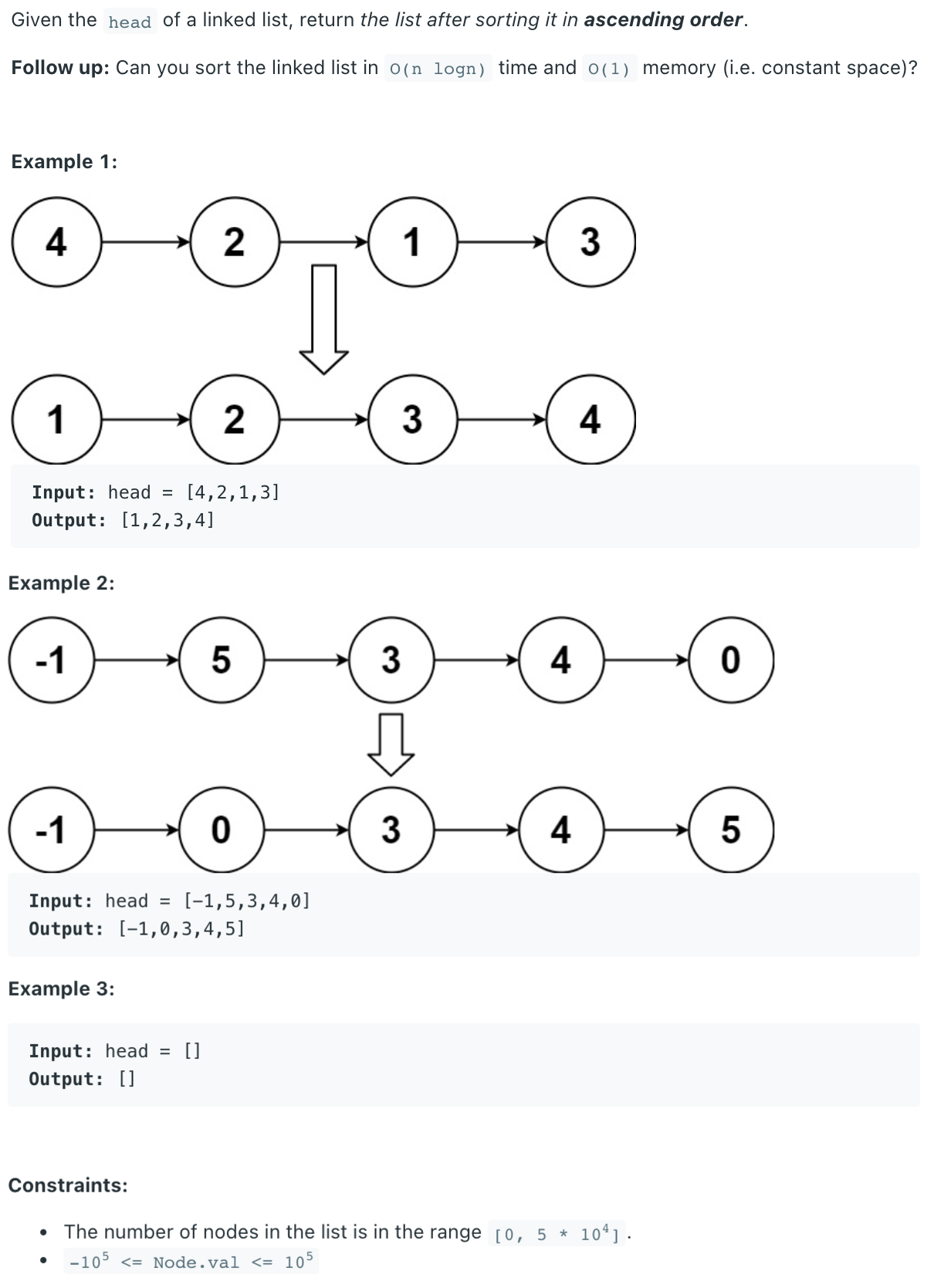Sort List
franklinqin0 Linked ListSort

# Definition for Singly-Linked List
class ListNode:
def __init__(self, val=0, next=None):
self.val = val
self.next = next
1
2
3
4
2
3
4
# Solution
# Merge Sort
# Recursive Top Down
complexity
time:
space:
def sortList(self, head: ListNode) -> ListNode:
if not head or not head.next:
return head
fast, slow = head.next, head
while fast and fast.next:
fast = fast.next.next
slow = slow.next
# disconnect
right_head = slow.next
slow.next = None
left, right = self.sortList(head), self.sortList(right_head)
return self.merge(left, right)
def merge(self, left, right):
if not left or not right:
return left or right
dummy = curr = ListNode(0)
while left and right:
if left.val < right.val:
curr.next = left
left = left.next
else:
curr.next = right
right = right.next
curr = curr.next
curr.next = left or right
return dummy.next
1
2
3
4
5
6
7
8
9
10
11
12
13
14
15
16
17
18
19
20
21
22
23
24
25
26
27
2
3
4
5
6
7
8
9
10
11
12
13
14
15
16
17
18
19
20
21
22
23
24
25
26
27
# Iterative Bottom Up
Gradually increase sub_len to merge iteratively.
def sortList(self, head: ListNode) -> ListNode:
def merge(head1: ListNode, head2: ListNode) -> ListNode:
dummy = ListNode(0)
curr = dummy
while head1 and head2:
if head1.val <= head2.val:
curr.next = head1
head1 = head1.next
else:
curr.next = head2
head2 = head2.next
curr = curr.next
curr.next = head1 if head1 else head2
return dummy.next
if not head:
return head
length = 0
node = head
while node:
length += 1
node = node.next
dummy = ListNode(0, head)
sub_len = 1
while sub_len < length:
prev, curr = dummy, dummy.next
while curr:
head1 = curr
for i in range(1, sub_len):
if curr and curr.next:
curr = curr.next
else:
break
head2 = curr.next
curr.next = None
curr = head2
for i in range(1, sub_len):
if curr and curr.next:
curr = curr.next
else:
break
succ = None
if curr:
# split
succ = curr.next
curr.next = None
merged = merge(head1, head2)
prev.next = merged
while prev.next:
prev = prev.next
curr = succ
sub_len <<= 1
return dummy.next
1
2
3
4
5
6
7
8
9
10
11
12
13
14
15
16
17
18
19
20
21
22
23
24
25
26
27
28
29
30
31
32
33
34
35
36
37
38
39
40
41
42
43
44
45
46
47
48
49
50
51
52
53
54
55
56
57
58
59
60
2
3
4
5
6
7
8
9
10
11
12
13
14
15
16
17
18
19
20
21
22
23
24
25
26
27
28
29
30
31
32
33
34
35
36
37
38
39
40
41
42
43
44
45
46
47
48
49
50
51
52
53
54
55
56
57
58
59
60